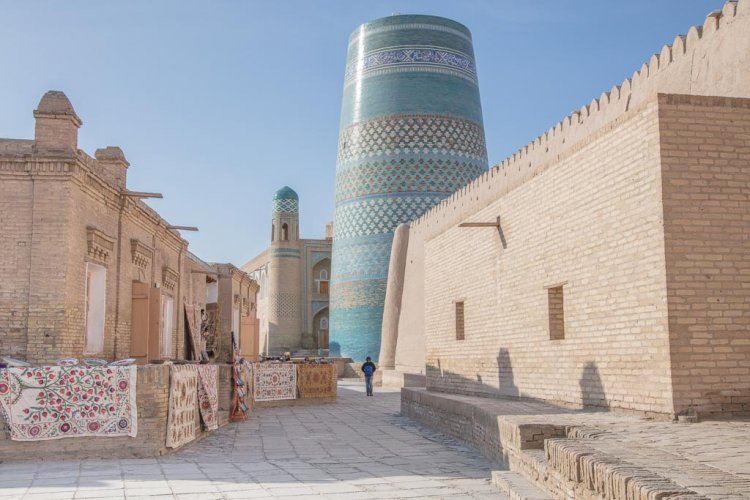New Restrictions Further Cripple Primary Islamic Education for Children in Uzbekistan
- Web Desk
- Jun 27, 2024 - 12:11
- Updated: Jun 27, 2024 - 12:13
In a significant move that could further constrain religious education, Uzbekistan's Legislative Chamber of Oliy Majlis reviewed a draft law on June 25 that targets parents seeking unauthorized Islamic education for their children. The proposed law, if enacted, will impose fines and potential jail time for those involved in illegal religious education, adding another layer of restriction to an already beleaguered system.
The draft law aims to update Article 47 of the Administrative Code, focusing on "Failure to fulfill obligations to raise and educate children." Under the new amendments, parents or legal guardians who illegally involve their children in religious education will face fines ranging from 3.4 million to 5.1 million Uzbek soms ($270 – $404). Repeat offenders could see fines increase to $670 or face up to 15 days in jail.
The crackdown comes amid rising concerns about hujras, clandestine religious classrooms that have proliferated across the country. Desperate to provide their children with Islamic education, many parents turn to these unauthorized setups due to the lack of formal options. Uzbekistan, a Muslim-majority country with a strictly secular government, upholds the constitutional right for citizens to profess any or no religious belief. After enduring seven decades of Soviet atheism and three decades of stringent controls under President Islam Karimov, a trend towards public religiosity is emerging. However, religious practice must conform to state-sanctioned Islam, with religious materials subject to approval by the Committee of Religious Affairs and strict state control over mosque appointments and sermons.
In 2020, a ban on minors attending mosques was lifted, allowing children to join prayers with close male relatives. Nonetheless, formal religious schooling is unavailable until children complete secondary or vocational education. Informal religious education at home remains common, supplemented by supervised access to religious books and online media. These circumstances compell some parents to resort to informal and unauthorized hujras—underground religious schools.
Hujras, which lack formal oversight and often operate in private homes, have proliferated due to the scarcity of legal, religious education. The government has closed numerous hujras, with a notable increase in closures from 33 in 2017 to 116 in early 2018. These schools are typically small and unlicensed, with teachers often lacking formal religious training. Some hujras have faced severe allegations, including child abuse and harsh disciplinary practices.
Despite being a Muslim-majority country, with 88-94 per cent of its 37 million population following Islam, Uzbekistan offers only 15 institutions for Islamic education. These include three higher education institutions and ten secondary education institutions under the Muslim Board of Uzbekistan. This is a stark contrast to the 2,125 mosques scattered across the country, highlighting a significant gap in accessible religious education.
Children can only enrol in these institutions after completing secondary school, typically around 15-16 years old. By this age, memorizing the Quran becomes considerably more challenging, as the tradition emphasizes early childhood as the optimal time for this task. Furthermore, admission to these institutions is highly competitive due to the limited number of seats, leaving many families without viable options.
Studying Islam abroad is also fraught with challenges. It is often prohibitively expensive, and many programs are only accessible to those over 18. Since 2021, Egypt’s Al-Azhar University has required Uzbek students to obtain a recommendation from the Committee on Religious Affairs, following concerns that students were using Al-Azhar as a means to obtain visas and study at other Islamic centres. An inquiry revealed that while only 40 Uzbek citizens were officially studying at Al-Azhar, over a thousand were attending other institutions. Similar restrictions apply to studying in Saudi Arabia and other countries, further limiting options for religious education.
Public and religious scholars have repeatedly called for lifting the ban on private religious education. However, the Committee on Religious Affairs maintains there is no urgent need, arguing that existing opportunities are sufficient. These include Quran and Tajweed courses, call centers, and e-platforms designed to address inquiries about Islamic practices. The Committee also cautions that integrating Islamic classes into mandatory state education could necessitate similar provisions for all faiths, potentially leading to social discord in the predominantly Muslim country.
Alisher Sa’dullayev, chairperson of the Youth Union of Uzbekistan, underscored the lack of qualified professionals capable of teaching Islam to the required standard. He questioned the depth of knowledge and professional competence of available educators, highlighting another barrier to expanding religious education.
Currently, those providing religious education without a permit face fines or up to 15 days in jail. The new draft law extends these penalties to parents, further restricting the pursuit of Islamic education and exacerbating the difficulties faced by many families. If passed, the law will impose significant penalties on parents, reflecting ongoing tensions between state control and the public's desire for religious education in Uzbekistan.
Disclaimer
The views expressed in this article are the author’s own and do not necessarily mirror Islamonweb’s editorial stance.
1 Comments
-

I just read your article and I find it very informative, very inspiring. I would also like to extend an invitation to you to visit my website <a href="https://ypmalfitrah.sch.id/">Lembaga Pendidikan Islam</a> and we can collaborate with each other. warm regard.
Related Posts
ASK YOUR QUESTION
Write questions as clearly as possible and type in English. Be careful to avoid typos. Avoid asking multiple questions together.
Popular Posts
Recommended Posts
Voting Poll
Get Newsletter
Subscribe to our newsletter to get latest news, popular news and exclusive updates.
























Leave A Comment